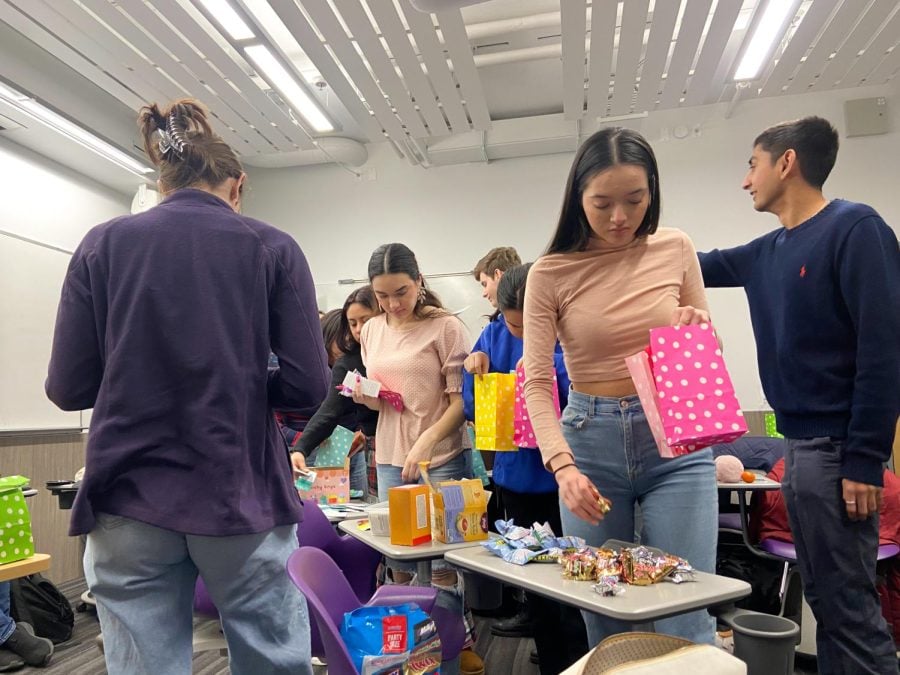NU Physicians for Human Rights works to educate on mental health stigmas, health-based social issues
Fiona Roach/The Daily Northwestern
NUPHR partnered with Bienestar this week to create mental health kits with uplifting notes such as “be proud of yourself.”
February 7, 2023
Content warning: This article contains mention of eating disorders and body dysmorphia.
Northwestern Physicians for Human Rights is working on a mental health advocacy campaign this quarter in an effort to educate itself and the NU community on public health issues.
The club, composed of pre-med students, focuses on a different health initiative each quarter. Past topics addressed include immigrant health equity, water insecurity and menstrual health equity.
“We’ve been wanting to do a health-based initiative dealing with mental health for a long, long time,” said Jay Patel, a Weinberg senior and co-director of NUPHR.
Its executive board selects topics that reflect input from general members.
Weinberg junior Shayan Malik, NUPHR’s treasurer and head of the education committee, said three committees — education, digital advocacy and event planning — collaborate to accomplish the group’s mission of giving back to the NU community and raising awareness on health-related issues.
This quarter, the club has been conducting a social media campaign. It is also starting to create podcasts about mental health issues, including eating disorders and body dysmorphia. The group recently sent out a questionnaire asking members to share testimonials on mental health issues and stigma they have experienced on campus.
In weekly meetings, members engage in roundtable discussions, listen to guest speakers and plan events and fundraisers. This week, NUPHR partnered with Bienestar — a club for Latine pre-med students promoting wellness — to create mental health kits with uplifting notes, such as reminders that grades do not define someone’s self-worth.
According to Malik, NUPHR’s primary goal is to inform.
“In order to be an advocate, you have to be educated,” Malik said. “We want to educate our members and educate not only ourselves, but the Northwestern community, as well as we can.”
Weinberg freshman and member Evgeny Stolyarov said he appreciates content learned from the club that he wouldn’t learn in a classroom.
He believes learning about the “bigger picture” behind medical issues will create better physicians later on.
“What (NUPHR) allows you to do, and teaches you what you don’t learn in medical school, is the actual social backgrounds, the inequities, both historical and present, that you see day-to-day when you’re interacting with patients,” Stolyarov said.
Patel said it is easy to lose sight of what’s actually important amid classes, exams and medical school applications.
But, the club reminds him why he wants to pursue medicine, he said.
“I believe that NUPHR is a reminder that medicine is way more than getting an A in (organic chemistry),” Patel said. “Medicine is, in itself, a people-based field, and in the application to get there, you lose that. You can get involved in helping communities and helping the people that you are going to be helping in the future now. You don’t have to wait.”
Email: fionaroach2025@u.northwestern.edu
Twitter: @fionaroach03
Related Stories:
— Bienestar looks to build community among Latine pre-med students
— Minority Association of Pre-Medical Students offers support and community



